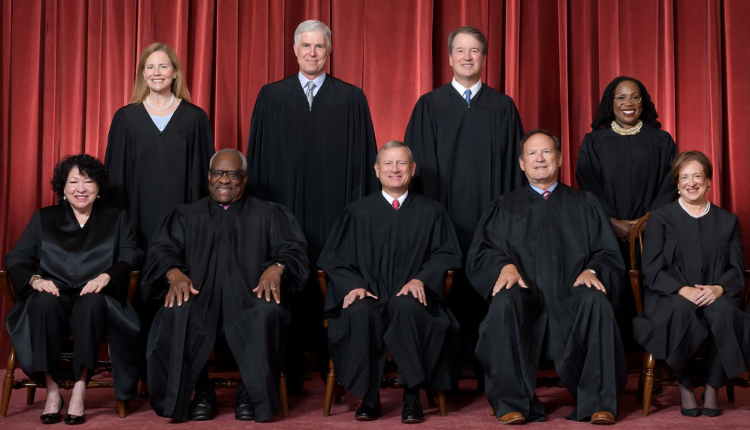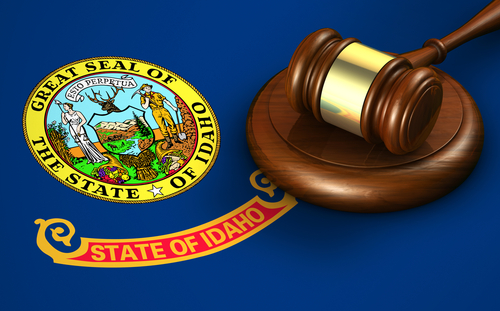Report says that one justice was ‘particularly vocal’ in opposing enforcement mechanism for SCOTUS Ethics Code.
U.S. Supreme Court
One justice was ‘especially vocal’ in opposition to enforcement mechanism for SCOTUS ethics code, report says
December 4, 2024, 10:44 am CST
The U.S. Supreme Court’s three liberal justices supported an enforcement mechanism for the high court’s new ethics code, “but their argument never had a chance,” the New York Times reports. (Photo by Fred Schilling via the Supreme Court website)
When the U.S. Supreme released its new ethics code in November 2023, critics complained that it relied on an “honor system,” rather than an enforcement mechanism.
The high court’s three liberal justices–Justice Sonia Sotomayor, Justice Elena Kagan and Justice Ketanji Brown Jackson–supported an enforcement mechanism, “but their argument never had a chance,” the New York Times reports. Its article is based on interviews with anonymous sources inside and outside the court.
Justice Neil Gorsuch feared that an enforcement mechanism could undermine the Supreme Court and “was especially vocal” in his opposition to it, the article reports. The article states that he wrote a memo that was over 10 pages long, “raising questions and warnings.” But as news reports focused on Thomas’ acceptance of luxury hospitality from wealthy benefactors, Roberts circulated a draft ethics code among the justices that had been prepared by a staff member.
During the justices’ discussion at summer’s end in 2023, they emphasized confidentiality. The New York Times reports that instead of using their usual email list, the justices sent “paper documents in sealed envelopes” to each chamber. Federal judges outside the Supreme Court must adhere to a binding code of ethics. A committee can offer advice, and ethics complaints go before chief circuit judges who can order an investigation and issue sanctions, such as a censure or a reprimand.
Supreme Court justices can get nonbinding advice from a legal office. New York Times: Their new ethics code does not include any restrictions on travel, real estate or gifts. Regarding gifts, the code says justices should comply with existing gift guidelines in separate federal rules, which, in their latest version, don’t require disclosure of personal hospitality outside transportation that substitutes for commercial transportation.
The justices also “gave themselves a broad carve-out for book deals and sales, one of the few ways they can make substantial outside income,” the New York Times says. The justices also allowed themselves to rely upon chambers staff and other resources for activities that were permitted by the code. This could have been an acknowledgement of Sotomayor using court staff to host events related to her book. The justices make the decision on recusals and do not have to explain why. Then, if justices were criticized, they could reveal that they had obtained clearance. Then if justices were criticized, they could reveal that they had obtained clearance.
“That modest proposal went nowhere,” the New York Times says.
The Daily Beast and the Volokh Conspiracy are among the publications that noted the New York Times article.
See also:
Supreme Court justices should follow binding code of ethics, ABA House says






